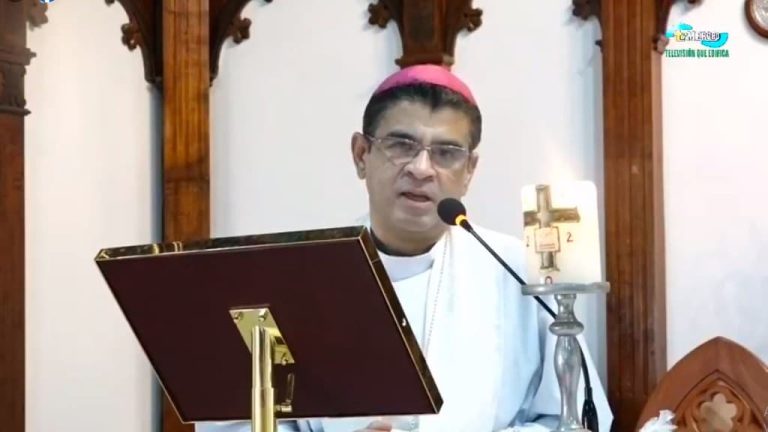16 de agosto 2022

Children of Exile: The Births “Sowing Hope” in the Camp of Nicaraguan Farmers

PUBLICIDAD 1M
PUBLICIDAD 4D
PUBLICIDAD 5D
Bishop Rolando Álvarez’s call for courage should be echoed in his country and throughout the world

Bishop Rolando Álvarez’s call for courage should be echoed in his country and throughout the world
“Fear paralyzes”, said the Bishop of Matagalpa Rolando Alvarez, held since August 4th in the Curia by the Nicaraguan dictatorship’s security forces, accused of “organizing violent groups” and inciting “acts of hatred” to destabilize the country. He has made it clear that he is not among the fearful.
During a homily broadcast over the Internet from inside the Curia, the regime kept the premises surrounded. The bishop has long experience with police action, but his house arrest on very serious charges is the height of attempts to intimidate him. If under such circumstances he is able to continue, the inaction of the frightened, wherever democracy is threatened, has no justification.
That is precisely what the regime is afraid of. The bishop’s courage is a bad example. That is why his apt criticisms are transformed by the government’s twisted rhetoric into incitement to hatred and violence. The same police forces that were capable of murdering hundreds of young people during the April 2018 protests now accuse the priest and other detainees of provoking “an atmosphere of anxiety and disorder, disturbing the peace and harmony in the community with the purpose of destabilizing the State of Nicaragua and attacking the constitutional authorities.”
Of course, claiming the constitutionality of these authorities is the first problem with the police statement. Daniel Ortega and Rosario Murillo remain in power due to a fraudulent electoral process, held as the main opposition leaders sat in prison. The Ortega-Murillo regime lacks even the alibi of social justice used to justify other dictatorships of the same ilk. It is a kleptocracy, with accomplices in the private sector, many of them coming from within the regime itself.
In line with this autocratic script, Ortega’s conflict with the Nicaraguan Church has to do with control over information and the press. The religious media, including many radio stations, have not been exempt from the government’s attack against independent media. A dozen media outlets linked to the Church have been closed while the persecution weakens, exiles or closes the others.
Bishop Alvarez was put under house arrest after he denounced the closing of five Catholic radio stations in Matagalpa and called for the government to respect religious freedom. In June, the channel of the Episcopal Conference and two other Catholic television stations in northern Nicaragua were also closed.
The bishop’s call for courage must be echoed in Nicaragua and throughout the world. It is essential to keep an eye on what is happening in Matagalpa, and the international community must take measures to stop the government’s abuses.
The messages of solidarity from the Latin American and Caribbean Episcopal Council (Celam) lead the way, but there has been a lack of action from many governments and organizations dedicated to the defense of democracy. Particularly surprising is the caution shown by the Vatican, whose silence is deafening in the face of statements such as that of Peruvian Bishop Miguel Cabrejos, president of Celam who said, “The latest events, such as the siege of priests and bishops, the expulsion of members of religious communities, the desecration of churches and the closing of radio stations, hurt us deeply.
Fear should not paralyze us, though that is the aim of autocrats. No people deserve to live under these authoritarian dictates, and we can still speak out decisively, as the bishop of Matagalpa does.
This article was originally published in Spanish in Confidencial and translated by Havana Times
Archivado como:
PUBLICIDAD 3M
Diario costarricense, fundado en 1946. Su primera versión electrónica (nación.com) se publicó en abril de 1995. Desde junio de 2015 implementa un sistema de suscripción digital.
PUBLICIDAD 3D